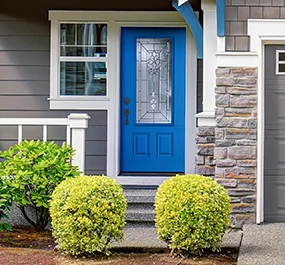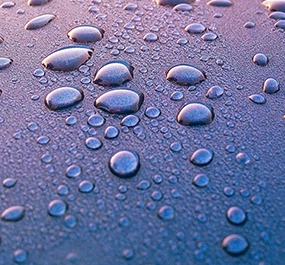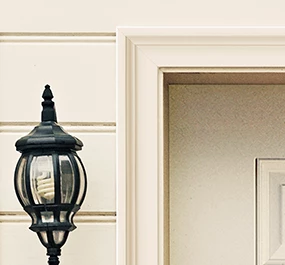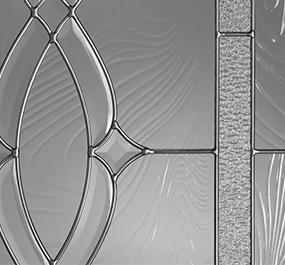Giving the front door a new coat of paint can be an easy and exciting way to add front door curb appeal and refresh the look of your home. Choosing a new front door color can be exciting, but choosing the best type of paint to use is equally important.
There are a few key considerations when choosing the best paint for exterior doors. Let’s take a look at what to consider when choosing paint for your exterior door.
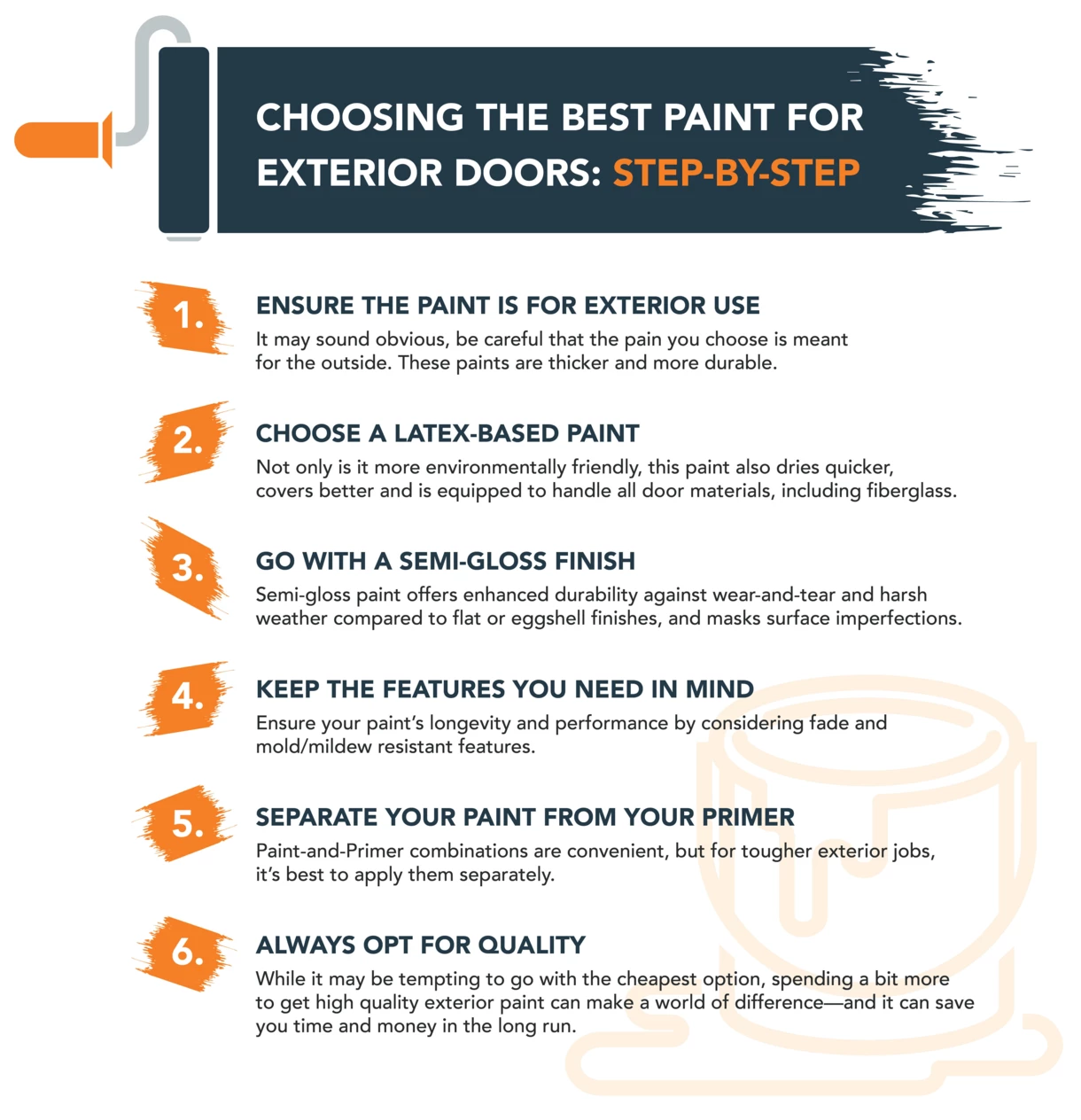
Choosing the Best Paint for Exterior Doors
There is no one-size-fits-all answer when it comes to finding the best paint for exterior doors. This will come down to a variety of factors, some of which will vary from situation to situation. That being said, there are some universal considerations that can influence both the quality and effectiveness of the paint.
Ensure the paint is for exterior use
While it may seem obvious, it’s important to choose paint that is specifically designed for exterior use. Exterior door paint is typically thicker and contains more additives to help stand up against the elements. Being that interior door paint is thinner and less durable, painting an exterior door with interior paint will likely result in peeling and fading far more quickly than if exterior paint is used.
Choose a latex-based paint when possible
While it’s not best for all situations, opting for a latex-based paint (also known as water-based paint) whenever possible is recommended. Latex-based paint dries quicker and covers better compared to oil-based paint, and advancements have closed the durability gap between the two paint types. If you have a fiberglass door, latex-based paint is always a great choice.
One of the most important reasons to opt for latex-based paint is that it’s more environmentally friendly and produces less paint fumes than oil-based paints. Not only does this make it an eco-conscious choice, it’s also better for your health. Many oil-based paint formulas include volatile organic compounds (VOCs) which are released as vapors when the paint dries. VOCs are hazardous to health—some states have chosen to ban their use altogether.
Modern latex-based paint is equipped to handle all door materials, though there are a few situations where oil-based paint may perform better; for example, wood that bleeds, such as cedar, can benefit from oil-based paint. Painting one of these doors with latex-based paint can result in tannin bleed-through, leading to yellowish-brown stains on the door. If necessary, look for oil-based paints with no VOCs added.
Go with a semi-gloss finish
While you may be inclined to choose a paint finish based on personal preference or style, semi-gloss paint is the ideal choice for exterior doors. Semi-gloss paint offers enhanced durability against wear-and-tear and harsh weather compared to flat or eggshell finishes, and it masks surface imperfections better than high-gloss. The glossiness also makes the door easier to clean as compared to flat or eggshell finishes.
Know which features you need
In addition to paint base and finish, exterior paint may also come with certain features designed to address specific needs. Knowing which features you need is essential for the longevity and performance of the paint.
Two common exterior paint features are fade resistance and mold/mildew resistance. Most homeowners can benefit from using fade- or UV-resistant paint on their exterior doors, but this is most important for those with either west- or east-facing doors, as they will be exposed to the most sunlight. For those in areas with high precipitation and humidity, it’s especially important to look for exterior paint that protects against mold and mildew.
By identifying these needs ahead of time, you can choose a paint that will last longer under the conditions your door is exposed to and can save you time and money in the long run.
Paint-and-Primer vs. Paint and Primer
Did you spot the difference? When shopping for paint, you may come across paint-and-primer combination formulas—meaning no need to buy paint and primer separately. This can seem like a great idea being that it is typically more affordable and will save you time by allowing you to apply both simultaneously.
However, it’s vital to know which situations paint-and-primer is best used in. While it may save time and money, it also may not be the best solution for your door, which can result in more work in the future.
Paint-and-primer combinations are best utilized in situations where the paint doesn’t need to do a lot of work, such as when painting a new, unpainted door or painting your door the same color. For tougher jobs, applying paint and primer separately is recommended. This can include painting a door that is stained or painted a dark color (especially when changing to a lighter color) or when the existing paint is worn and peeling.
Choose high quality paint
Chances are there will be numerous cans of paint that fit the description you’re looking for. While it may be tempting to go with the cheapest option, spending a bit more to get high quality exterior paint can make a world of difference—and it can save you time and money in the long run.
While price doesn’t always equal quality, it’s safe to assume that, when it comes to paint, higher price options will last longer. Set your budget, and then choose a paint that comes as close to it as possible. That way, you know you’re getting the best investment for your money.
Get Started on Painting Your Exterior Door
Once you’ve taken all the major factors into consideration and selected the best paint for your exterior doors, it’s time to start painting. Plastpro has guides on how to paint both woodgrain and smooth skin doors available for reference.
If you’re looking to pair a brand new door with an exterior paint of your choice, check out Plastpro’s fiberglass doors, including the Smooth Skin Door Series. Available in a pre-pigment white skins, the Smooth Skin series can be easily painted any color of your choice
To find out where to get a Plastpro fiberglass door today, visit our Where to Buy page to find where Plastpro doors are sold near you.
